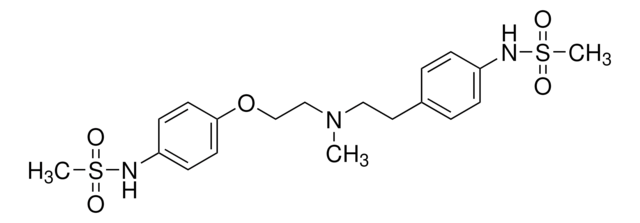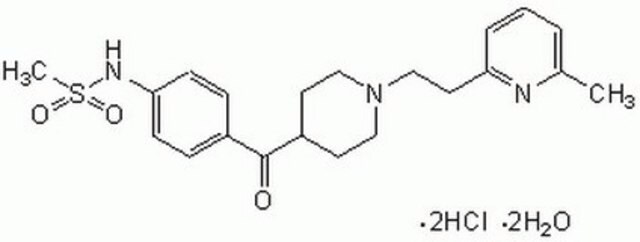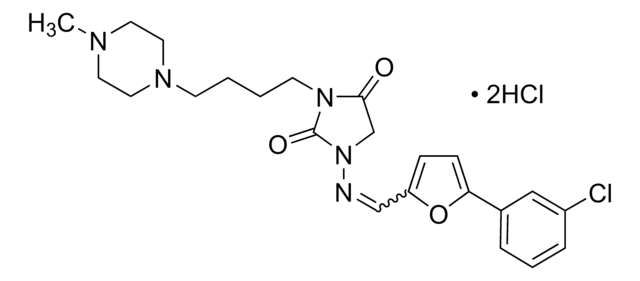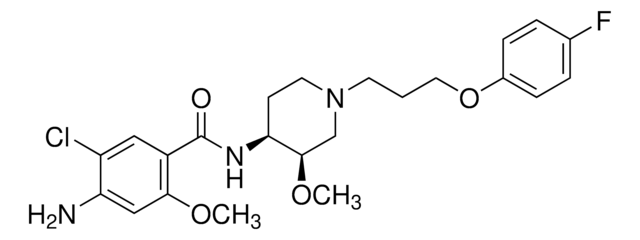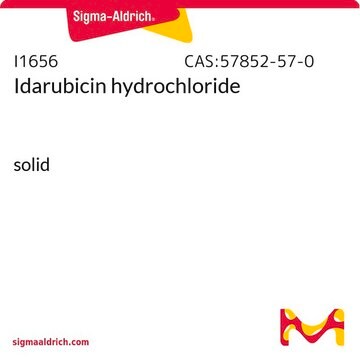PZ0016
Dofetilide
≥98% (HPLC), powder, hERG channel blocker
Synonyme(s) :
N-[4-[2-[Methyl[2-[4-[(methylsulfonyl)amino]phenoxy]ethyl]amino]ethyl]phenyl]methanesulfonamide, UK-68798
About This Item
Produits recommandés
product name
Dofetilide, ≥98% (HPLC)
Niveau de qualité
Pureté
≥98% (HPLC)
Forme
powder
Couleur
white to off-white
Solubilité
DMSO: >20 mg/mL
Température de stockage
room temp
Chaîne SMILES
CN(CCOc1ccc(NS(C)(=O)=O)cc1)CCc2ccc(NS(C)(=O)=O)cc2
InChI
1S/C19H27N3O5S2/c1-22(13-12-16-4-6-17(7-5-16)20-28(2,23)24)14-15-27-19-10-8-18(9-11-19)21-29(3,25)26/h4-11,20-21H,12-15H2,1-3H3
Clé InChI
IXTMWRCNAAVVAI-UHFFFAOYSA-N
Informations sur le gène
human ... KCNH2(3757)
Vous recherchez des produits similaires ? Visite Guide de comparaison des produits
Actions biochimiques/physiologiques
Caractéristiques et avantages
Mention d'avertissement
Danger
Mentions de danger
Conseils de prudence
Classification des risques
Aquatic Chronic 2 - Repr. 1B - STOT RE 2
Code de la classe de stockage
6.1C - Combustible acute toxic Cat.3 / toxic compounds or compounds which causing chronic effects
Classe de danger pour l'eau (WGK)
nwg
Point d'éclair (°F)
Not applicable
Point d'éclair (°C)
Not applicable
Certificats d'analyse (COA)
Recherchez un Certificats d'analyse (COA) en saisissant le numéro de lot du produit. Les numéros de lot figurent sur l'étiquette du produit après les mots "Lot" ou "Batch".
Déjà en possession de ce produit ?
Retrouvez la documentation relative aux produits que vous avez récemment achetés dans la Bibliothèque de documents.
Les clients ont également consulté
Notre équipe de scientifiques dispose d'une expérience dans tous les secteurs de la recherche, notamment en sciences de la vie, science des matériaux, synthèse chimique, chromatographie, analyse et dans de nombreux autres domaines..
Contacter notre Service technique